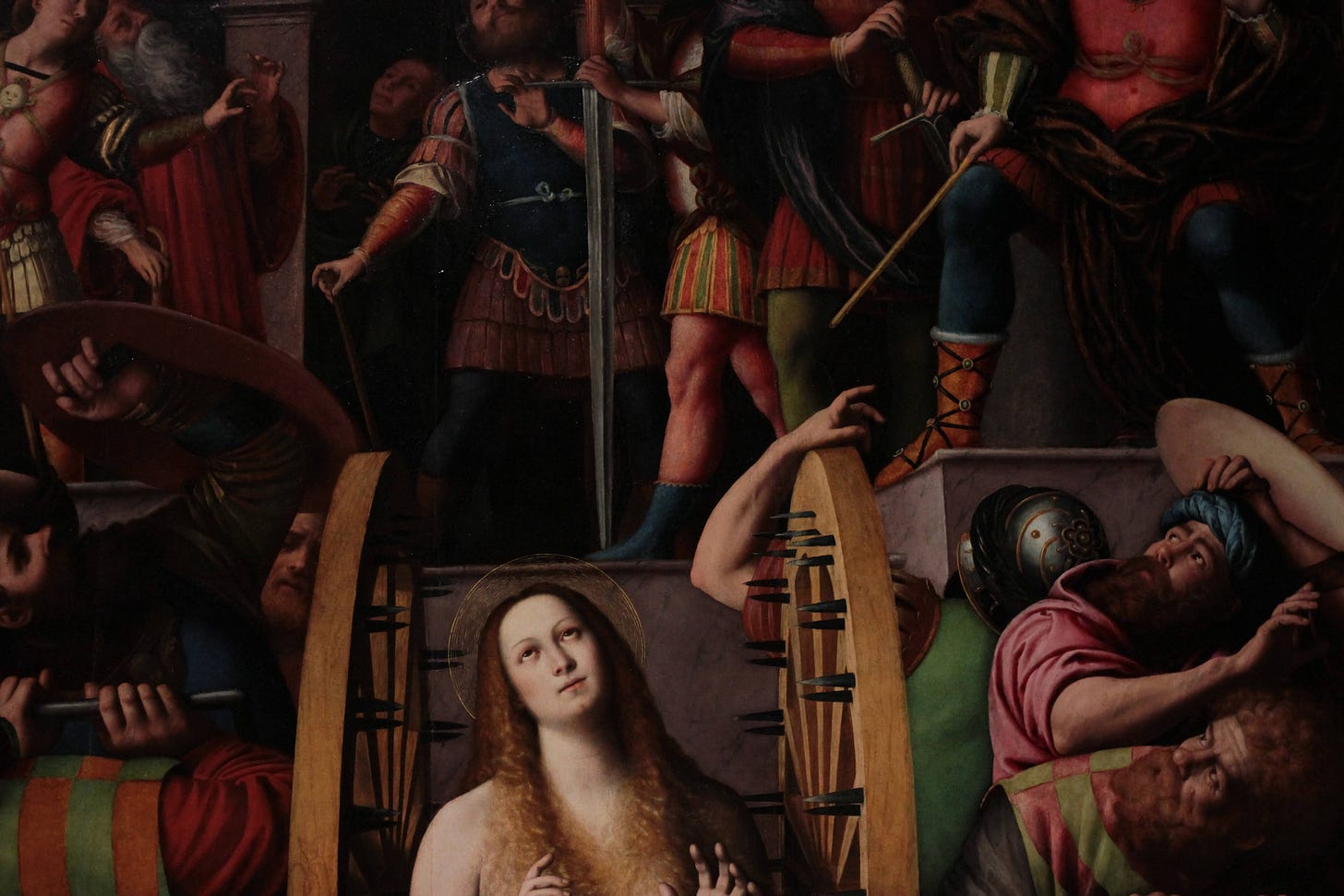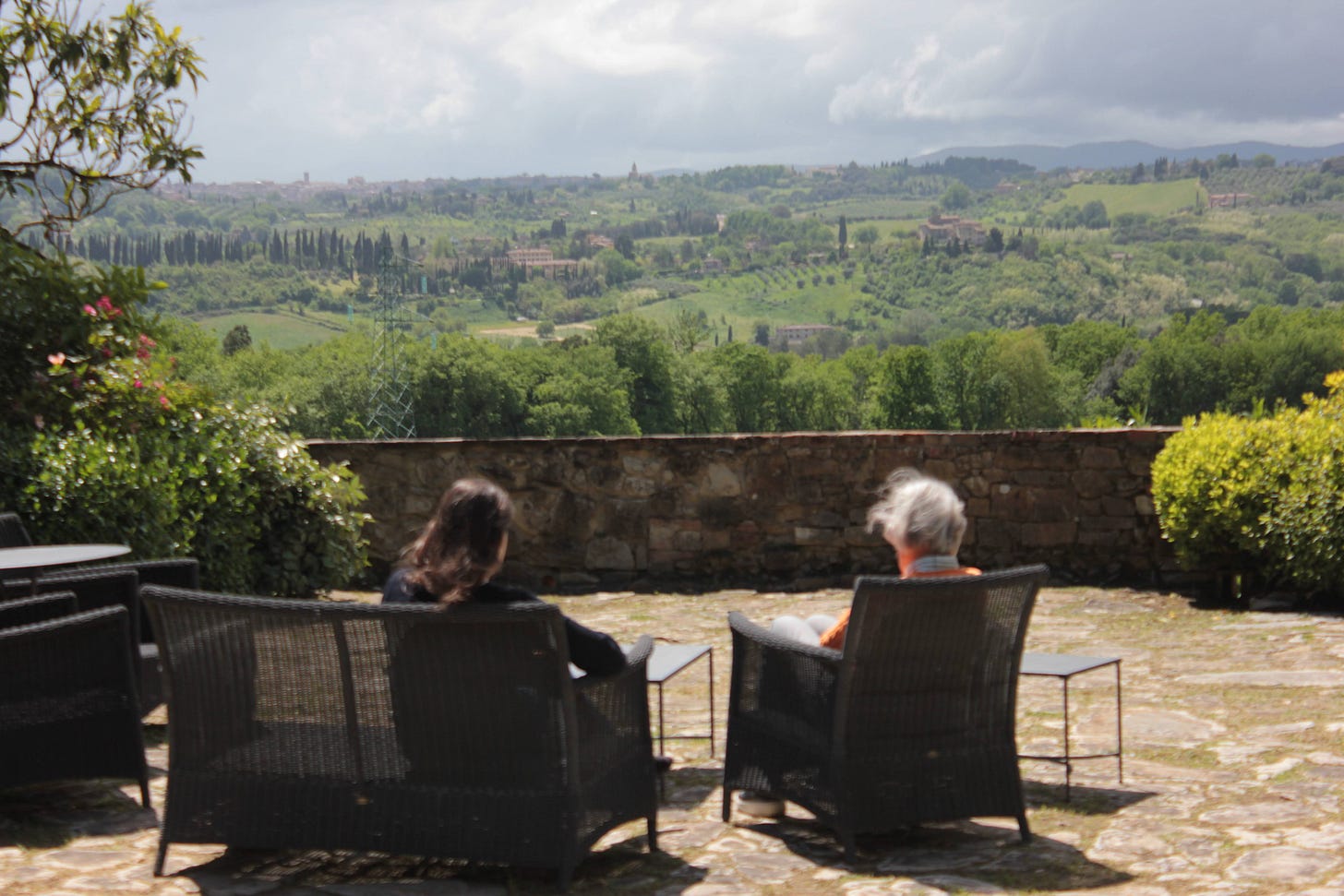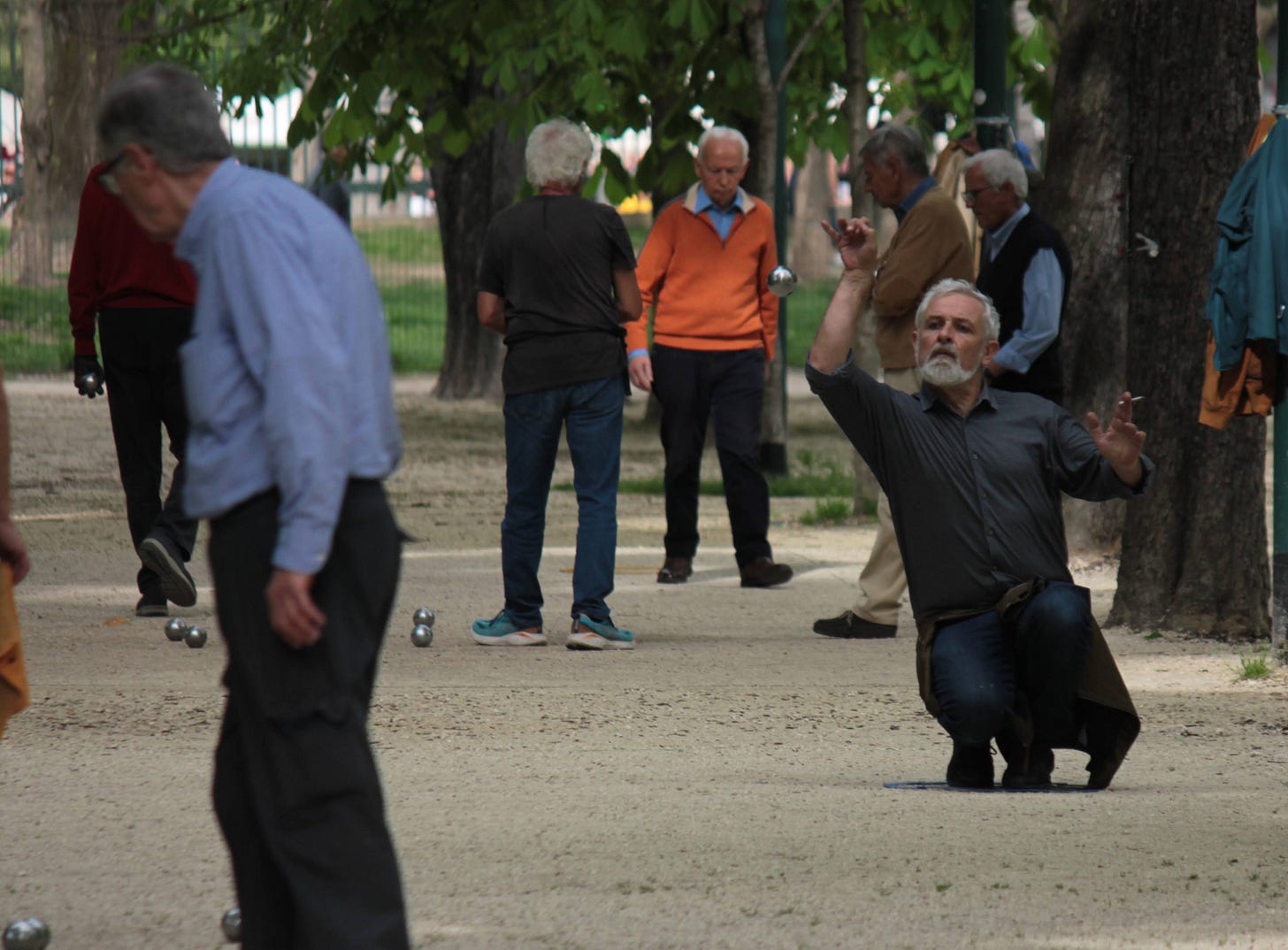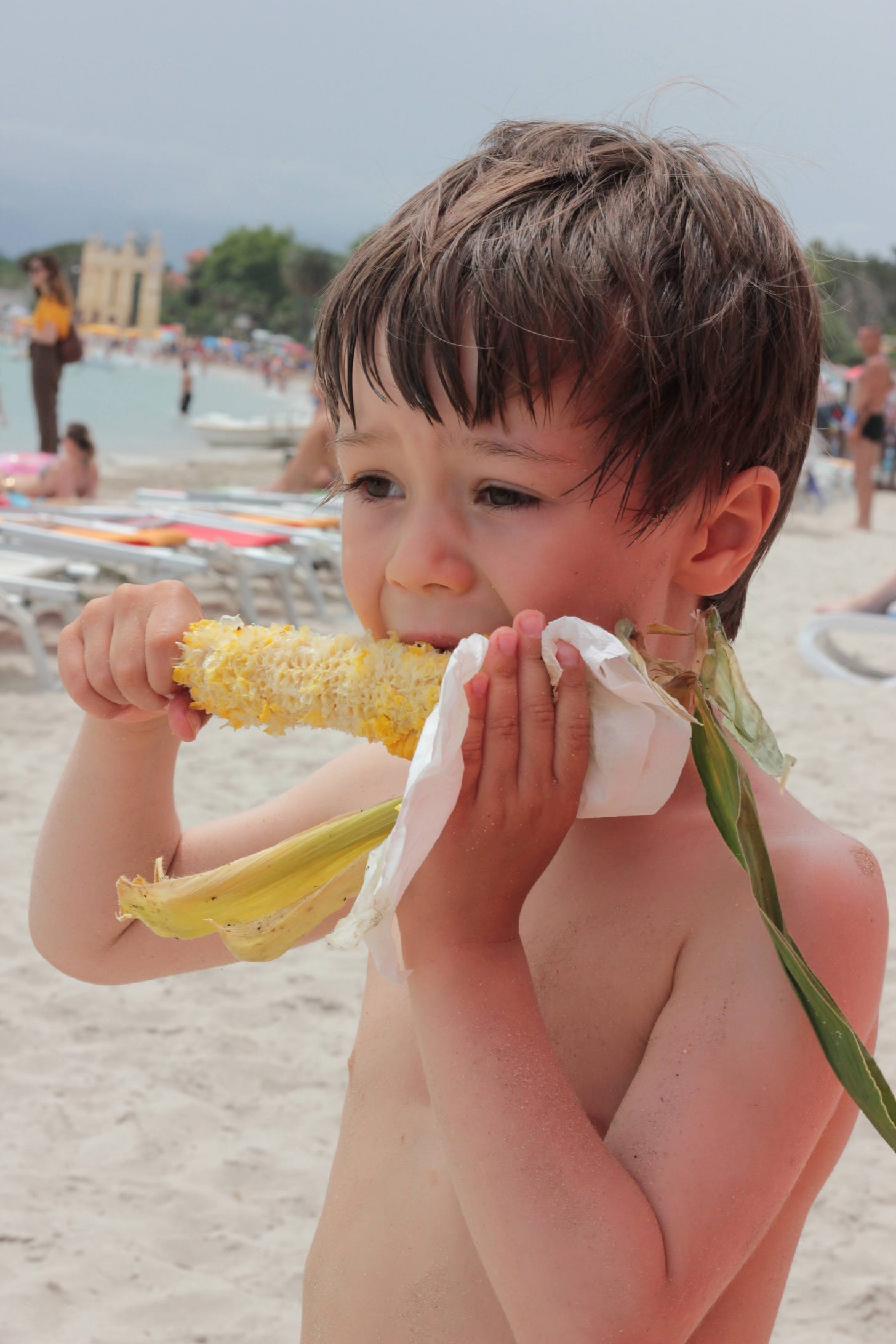Seven Habits of Highly Effective Travellers
Actually, there are ten, but I love Stephen Covey, so...
It was May, 1998. I was 18 years old, and the boat I had a berth on had docked on the Greek island of Mykonos. At a bar on the harbour, drinking cheap beer, I met a guy a few years older than me, from Philadelphia. He had been living out of a small Vans backpack for ten months; I think he said his name was Turtle. We went bar hopping with my friend Mike, from Florida, and some Irish girls we met. At one point, the girls were peeing, Mike was throwing up in the ocean, and I was getting a round at the bar. When I got back to the table, maybe ten minutes late because I was joking with the bartender, Turtle looked at me and, suddenly very sober, said, “You’re a traveller. That’s why we get along.”
I asked him what he meant, and he gestured around the bar. “All these people are tourists,” he said. “We’re not. We’re travellers. They’re all trying to get drunk and get laid. We’re more interested in connecting with real people and really experiencing a place than...” and he gestured, dismissively, at the party all around us. The girls stumbled out of the bathroom door, laughing. Still serious, he simply said, “you’ll figure it out,” as they sat down. He raised his bottle, looked me in the eyes, and we toasted, suddenly a small, private fraternity.
(Later than night, someone stole his Vans backpack, which had his passport; he refused all offers of financial assistance, and melted into the night, into my memory. I have his email address scrawled in the pocket notebook I had for the trip. I always wondered what happened to him. I have no doubt he turned out fine.)
But he started me thinking. There is a difference between tourists and travellers, and it is fundamental to how each group interacts with different places, cultures, and individuals.
I thought of Turtle a few days ago, when I saw that The Wall Street Journal had an article about how American tourists are dealing with “animosity” overseas. The article points to two factors leading to Americans being uncomfortable when travelling - “antitourism” (which relates to tourists from any other country) and reactions to American foreign policy (which affects Americans in particular). The article then offers some general advice on how Americans abroad can deal with this.
The advice - stuff like how to dress (don’t stand out) and how to not be the “loud American” (STFU) - is generally well-intentioned. However, it reminded me of how Stephen Covey summarized the vast majority of American self-help literature: he noted that most self-help books focus on changing a person’s surface-level personality rather than fundamentally improving the person from the inside. This means that people focus on how to seem like a good person rather than how to become a good person. Similarly, instead of telling readers how to be better people when abroad, the WSJ ignores the root causes in favor of giving tourists quick, insignificant fixes that don’t actually address what is wrong with their approach to going places.
Have I put an unreasonable amount of thought into this? Actually…yes. I have been travelling internationally for thirty years, and have lived outside of America for twelve. While I am doing everything I can to keep my Californian accent, I have consciously worked on becoming that cultural chameleon that Turtle alluded to, and on developing specific habits that help me go beyond the surface level of being a tourist. In the hopes that others might want to go down that travelling path, I decided to propose some thoughts - not like the WSJ did on how to be a better tourist but how to be a better traveller. So, drinking a delightfully cold can of Borsodi on a bench in Budapest, I came up with the following list. It is by no means exhaustive or exclusive, and I’m sure I can come up with more, but this is a start.
1. The goal of travelling is to learn, and learning takes time.
I know a much younger guy in Edinburgh who, after graduating from college, got a Interrail pass and went around Europe. The problem was, he wanted to do it quickly, so he only went for a week. He asked me if I had any recommendations; I suggested he meet some of my friends in Barcelona and Paris, but then he said that he only had about an hour or two in each city, because so much of his time was going to be spent on trains. I suggested that he should instead stay in one place for a week and really get to know it, but he replied that he wanted to see everything, so he had to keep moving. I almost suggested that by wanting to see everything, he wouldn’t actually “see” anything, because he’d be in a train seat for a week, but I realized that it would fall on deaf ears, so I asked him to send me his schedule and told him I would think about it. (I never got back to him.)
Some people travel with a specific itinerary of selfie spots. Some travel to distant lands to take photos of their food. Some people spend all of their time shopping. The goal of all of these people is to consume - whether it is items, food, or experiences. For many of them, the consumption becomes conspicuous as soon as they post it on Instagram or TikTok; for these tourists, trips are taken to brag.
In contrast, I propose that the primary goal of an effective traveller is to learn. It might be to learn different ways of doing things (for example, in Budapest, some ice cream shops charge by the gram rather than the scoop, which strikes me as a fair way to price what is otherwise a completely arbitrary measurement). It might be to meet new people and learn how they are different (or, more likely, to realize how similar we all are). It might be to pick up new ideas about how to organize a city or a country, or it might be to learn about oneself. However, it will not be to get selfies, to party as hard as humanly possible, or to see how many Michelin restaurants one can eat at.
So…you need to start by learning.
If the first goal is to learn in the place you are going, you also need to learn about the place you are going. I don’t mean glancing over the three sentences that the Solitary Globe guide has which summarize a country’s 2,400 years of history - I mean, really dig into fiction and non-fiction about the place you are going. Read at least one long, dense history of the place (including recent history), as well as a novel, and set up news alerts so you know what is going on there today. The history will give you some facts about why the place is special; the novel will help get you into the mindset of the people you will bump into on the street; the current events will help you understand the pressures that locals face. (If you are stuck, Goodreads is great for compiling books about, or set in, particular cities.)
In addition, it helps to read at least one article a day on where you are or what you will be seeing. Going to Italy? Besides reading the Wikipedia article about Milan, read about Georgio Armani’s friendship with Eric Clapton, about Hemingway’s stay in an Italian hospital, about Ludovica Sforza’s patronage of da Vinci. Hungary? Read about paprika, about the Austro-Hungarian empire, about the Russian “liberation.” Paris, Rome, Niederwinkling - if a tourist thinks a place is boring, a traveller will know that it is simply that they don’t know enough, and if they come across something they don’t know about, they will strive to learn more.
Will all of this take time?
Yes. And your trip, and life, are absolutely worth it.
2. Focus on people.
Tourists love guide books because these books have long lists about places and things. When tourists get to a place, they make a point to tick off sights; they get to Paris and they go to galleries, check out the “best” patisseries, and get reservations at the recommended, as-yet-untouched-by-tourism bistros. Then, they almost certainly post photos of their croissants and full wine glasses and perhaps their idiotic poses with artwork.
The thing is, these books will never address the most important part of travelling: the people. An effective traveller will spend time focusing on the people, and will implicitly understand that the most important thing that they can do is to make friends.
And anyone can be a great friend. In Milan, I started talking with the guy who stocked the fruit and vegetables at our nearest grocery store; later, my dad met him for coffee, I helped him with some visa questions, and we still text each other. If anyone goes to Milan, rather than tell them to get pizza at Mangio (and to tell Pietro that I sent them), or vino sfuso at Le 7 viti (Chiara is amazing; tell her I said ciao), I will tell them to go to the Carrefour on Via Torino mid-morning, after the unloading is done, and to ask for Ibrahim. A handshake from him is worth more than a morning in the Duomo, or checking out the Last Supper, ever could be.
Well…if you can get a handshake AND see the Last Supper, do that.
If you simply learn and focus on people, you will encounter almost no problems as a traveller. But for those who want more specific details:
3. “Never let no one know how much dough you hold.”
Sorry, Biggie - this gets bumped to Rule Nombre Tres.
To paraphrase Dale Carnegie, “if you want to make enemies, excel your friends. If you want to make friends, let your enemies excel you.”
By travelling, you already probably have a bit of money and time at your disposal; the people where you are going will be living and working, and will feel at least a bit jealous that you can get away from your home. No matter where you go - London, Paris, Rome, Sydney, Mauritius - the people will be used to their city and surroundings, and will see it as normal. Fair or not, they will see you as a rich interloper.
So why do some people make it harder on themselves by wearing their finest? If you show up in expensive clothes, carrying a ten-thousand dollar handbag or shoes, everyone will roll their eyes: “another tourist, trying to show strangers how rich and important he/she is.” You might get reservations to a Michelin-starred restaurant, but the people you are paying to be nice to you won’t invite you into their lives and homes; they will just resent you.
Effective travellers will walk around without any logos on their clothes, knowing that this will help them fit in. Even if brands are more international, logos on your clothes will only serve to separate you from other people, and that’s not what an effective traveller wants.
This doesn’t mean that you should ignore quality; far from it. Just don’t be ostentatious. Bring quality things that you can lose and replace easily, if necessary - you may not want to lose things, but if you are mentally prepared to, it will help you get in a better mindset about your trip and your possessions.
Above all, be sensitive, and don’t make locals feel threatened or jealous about your presence in their country. This starts with your appearance.
4. Walk everywhere you can walk.
This has two parts: get out of your lodging and stay out of a car.
The first part is important: don’t stay where you are sleeping. A lot of people stay in hotels and eat breakfast in the hotel lobby restaurant, work out in the minimalist hotel gym, get massages in the top-floor hotel spa, drink at the hotel rooftop bar, and fall asleep watching their big-screen television; they can go days without actually leaving the walls of whatever multi-national corporation is hosting them.
This is anathema to an effective traveller.
First, walk on your own two feet out of your lodging and into the world. It’s simple but, for many people, not easy.
The second part, staying out of cars, may not apply to America, where cars are like limbs and cities are often impossible to travel in without a vehicle. It certainly applies to Europe, where the cities are set up for pedestrians and it is extremely easy to get around on foot.
Cars separate people and cut them off from interactions. This is especially true of driving around, but it is as true if you are getting Ubers or taxis everywhere - you become a single-serving friend to whoever you are paying to share a space, easily forgettable. The speed of cars also brings you past myriad opportunities to discover, to experience, to explore, to see.
Walking is one of the most basic human activities, and, for tourists, is easy to do. Take your opportunity to step out into the messy, beautiful world you are visiting for such a brief time.
5. When you can’t walk, take public transportation.
If you were driving, it would be difficult to spend ten minutes looking out of the window at the gathering clouds on the horizon.
If you were driving, it would be difficult to watch a woman on a third story balcony, sipping her coffee and smoking a cigarette, then turning to say something to someone inside the room who made her laugh.
If you were driving, it would be difficult to watch two old friends hug on the sidewalk, then agreeing to go into a cafe for coffee.
You can do all of these things if you take public transportation, because you don’t have to focus on the road. Instead, you can look everywhere else, knowing that the driving is taken care of.
If you can’t walk, take a bus or a tram or a train. This helps you engage in a common experience with people (a light form of “activate,” below), learn a new system and to see the city. It also helps you learn better how locals experience their own city (in a way that a car cannot), and the travel routes that were deemed important enough to devote lines to (helping you identify priorities, landmarks, etc.).
An added benefit: you give up a lot of control, which, when trying to learn, is a great advantage. (Imagine a student who tells the teacher what, when, where, and how to teach; they wouldn’t learn much.)
6. Find your suppliers, and then become a regular.
Repeat interactions lead to friendships, regardless of whether or not there are economic incentives.
An effective traveller will identify places to get food and drinks, and then exhibit fierce loyalty to them. Ideally, you will find a greengrocer, a butcher, a baker, and a general grocery store, as well as an independent bottle shop (or, in Italy, a vino sfuso shop). Then, go every single day, and sometimes twice a day, to get what you need. In the end, you will know them, and they will know you. What I didn’t include about Ibrahim in Milan (point two): because he knew so much about the fresh food they received, he started telling me what was good or bad with each day’s shipment. We changed entire meals based on his recommendations - perhaps the strawberries were not so good that day, or the tomatoes had been kept too cold for too long.
He took care of us.
By being a regular, you will save money, make friends, learn what is special and local, and, most importantly, you will have a far richer experience than someone who just flutters in for a social media post, then flutters out, neither making nor leaving any meaningful impression.
7. Activate.
A long time ago, I read something that struck me as absurd at first, but, on a tiny amount of reflection, showed itself to be supremely true: “We are not friends with people we are like; we are friends with the people we do things with.”
I remember, early in my dating life, when this was made abundantly clear: on a date with a girl named Amy in Washington, DC. I set it up, a dinner an a movie, as I understood adults were supposed to do. It was HORRIBLE, and the only reason she ever contacted me ever again was because she read an article about how my boss was one of the most powerful people in the world (which shows what motivates people in DC). I remember walking back to the metro after we shook hands goodbye and vowing never to do anything like that ever again.
The better option? Having interesting things to do. It is easier, and far more effective, to invite potential dates canoeing, or go-kart racing, or to race yachts, or to go to tango dancing lessons; I think that dinner-and-a-movie date was the last date of its kind I ever went on.
It is the same for meeting people while travelling. Effective travellers will do things that give them something to do with other people, things that break down barriers between people and help forge connections and relationships. They will do something with other people that distracts everyone from the fact that they are making friends and learning about each other.
Personally, I can’t recommend anything more highly than Brazilian Jiu-Jitsu (BJJ). BJJ brings you into extremely close contact with other people; everyone on the mats is there to improve; generally, people training are highly intelligent, educated, and interesting. There are clubs all over the world, and visitors can often train for free for at least a few lessons. Clubs often even have gis you can borrow so you don’t have to pack your own; alternately, buying a club gi will both help you fit in and remind you of wonderful experiences when you wear it back home. Your training partners will want to practice their English with you; you’ll be invited into their homes to meet their families, or on nights out with people you barely know but who you trust with your life.
The activity doesn’t have to involve life-or-death experiences, but it does have to involve experiences. An effective traveller will get out and do things with other people, and, by doing things, will be far better off than if they just stayed in their room.
8. Leave your toothpaste at home.
Tim Ferriss inspired this one. Somewhere, he wrote about how, when going to a new place, he would leave his razors at home. Originally, I think it was because he didn’t want to pack anything other than a carry-on, and he couldn’t take razors; he then realized that this forced him to go out to find razors in a new place, which taught him a bit about the neighborhood and the culture.
I did this with razors in Berlin. I brought along an old Gillette safety razor and, on my first night, went out with it to find blades. I started in a grocery store (nein), then a general department store (nein) before someone told me to go to a pharmacy, which turned out to be more of a beauty supply store; there, I found the second-best safety razor blades I have ever used. Beyond that, I suddenly knew my way around three shops over a square mile. (Later, I went out with a workmate for dinner; she asked how I knew so much about the street outside our hotel. I just shrugged.)
Effective travellers will use something like this to both get them out into the streets and to expand their understanding of how other people live their lives.
Now, I like to leave toothpaste behind. Many places have local toothpaste brands that are interesting or different, and, even if they are similar to the ones back home, it is fun to have a tube of Colgate or Aquafresh in Italian or Malay.
9. Turn your phone off.
Simple: turn your phone off, or to silent, or just toggle the data off.
I used to follow an American woman on Substack; she was living in Italy. I stopped following her when she posted something about how she had met up with her brother (who is in his 60s and had flown over from the States) in Paris, and they had spent all day looking for some particular cafe from the movie Amelie. They finally got a table outside, in beautiful weather, and someone took a few photos of her, which she posted to tell everyone about what she was doing. What was it that she was doing after so much time and work?
She was ignoring her brother, her coffee, and her surroundings, and staring at her phone.
Effective travellers will not walk around staring into a screen (even if that’s what locals do). They will not be scrolling through Instagram or TikTok on the bus, or catching up on the news over a coffee, or focusing on the lives of people who they do not know in places they are not in. They will, instead, be paying attention to their surroundings, to the people and places immediately around them.
Not their phones.
10. Leave each place better than you found it.
Effective travellers will leave each place a little better than they found it. They will do this because they care about the place, are grateful for the opportunity to travel, and love life itself.
This is usually done in small ways. You can pick up some trash, walk slowly in an intersection to make sure an old person can get across the street safely, or water a plant that looks a bit droopy. Matthew 6:3 it - it is always best if nobody knows what you are doing.
But do good.
Again, this is not an exhaustive list; it isn’t even the same number of habits that I promised when I first wrote the title. However, I think it’s a good start.
Some people might point out that these are good ways to live life. Any similarity to good general life advice is purely coincidental.








I’ve learned to approach a new city or country with the mindset that I will be back, no matter how unlikely that may be. This takes the pressure off to “see everything.” I also like to go to grocery and department stores, everyday places tourists don’t usually go. If you can discretely, respectfully, observe a wedding or funeral, even better. In Mexico, I stumbled upon a quinceañera. It was fascinating.
I really enjoyed this. I agree, it’s about people. You can see the touristy stuff from home on Youtube.
I will never forget my crusade to find natural peanut butter in Budapest. I found it at a Spar, but other Spar locations didn’t have it - I ran out really fast. I couldn’t remember the one that had it, so it resulted in a day long excursion to find natural peanut butter without sugar or tropical oil. It was fun!